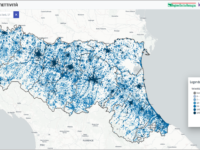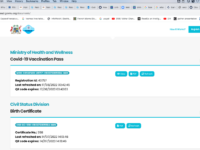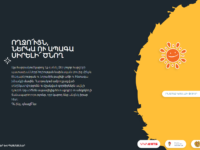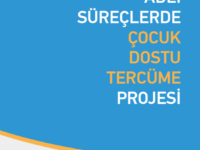The UK government launched a new “youth hub” offer of employment services to young people affected by the disruption of the covid-19 pandemic. Through four days of workshops with key stakeholders, which included engaging young people, Impetus ran a theory of change process to enable one of the flagship hubs to co-design their new service to best serve young people. This is the first time that Impetus has applied its theory of change tools, and its impact focus to a government policy…
Innovation Tag: Service Design
Emilia-Romagna’s Digital Agenda led a significant innovation process for public administration decision-making. The process resulted in a co-design phase with local administrations to structure and publish online the first geo-referenced regional Observatory on ultra-broadband connectivity in Italy. Multi-stakeholder participation made it possible to identify and highlight the various strengths and weaknesses of the tool, enabling its optimisation.
Explore.Porto challenges citizens and visitors to discover and explore the city. The service is provided through a digital platform, anchored in beacons placed in strategic points in Porto. Anyone equipped with a smartphone can instantly obtain information about where they are and their surroundings, as well as the best way to get around. This user-centered innovation has proven its impact on the adoption of local services by both citizens and visitors.
With a view to achieving the vision for a paperless environment, the MoKloud platform provides storage space for every citizen for the safekeeping of personal official documents in a digitally secured format bearing a QR code and digital signature, as may be required. Currently, MoKloud hosts birth and marriage certificate extracts, digital vaccination passes, certificates of electricity supply and e-payslips. MoKloud documents are shared by an API or scanned for verification.
In response to the absence of a reliable digital tool that empowers mothers and parents with evidence-based methods of healthcare, the BarevBalik (Hello, Child!) platform (website and mobile app) was developed in cooperation with the Republic of Armenia's Ministry of Health. It is a "one-stop-shop" for maternal and child healthcare that provides access to health information, information on public health services, digital tools, and a digitalized health service.
„Gemeinsam Digital: Berlin“(Together Digital: Berlin) combines the digital and smart city strategies. We define smart as solving future challenges in creative, open, experimental and participatory ways. This strategy helps to establish new work approaches, agile methods, competence building, and a systematic knowledge transfer between the administration and its inhabitants. By aligning technologies, methods, and cultural processes, it supports existing strategies to reach their respective…
The project is aimed to prevent the loss of the rights of refugee children in Türkiye due to language and translation difficulties in judicial processes. Children involved in judicial processes, translators, judges-prosecutors and other auxiliary judicial staff have benefited very much from the project. For the first time, the capacity of translators has been strengthened and the secondary trauma risks of children have been mimized.
Finland’s Ministry of Finance set a target for all public services to be available digitally by 2023 as part of its Program for Promotion of Digitalisation. The 'Co-designing future digital services' project is a new way of providing free expert mentoring for public sector organisations in developing their digital services, with an emphasis on collaborative learning. The aim of the project is to ensure that future digital services are designed to be human-centered and of high quality.
The AJSC has developed a new model to measure the determinants of the ‘quality of life’ in Ajman, covering six key areas of public service. The Model comprises a comprehensive factor measurement framework embedded on a sophisticated web-based application, with inbuilt protocols for scientific data collection, project management, data visualization and reporting. It systematically measures gaps and impact of interventions, via targeted performance assessment of framework factors.
AFSA regulates the bankruptcy system in Australia. The system is designed to support those in vulnerable situations due to circumstances beyond their control. However, there are bad actors who exploit the system by hiding assets/income. Using our risk-based regulatory approach, we have designed a system that uses an applicant's data and validates it against external data sets to detect potential misconduct. We aspire to build a data model to predict non-compliance at the system entry point.





